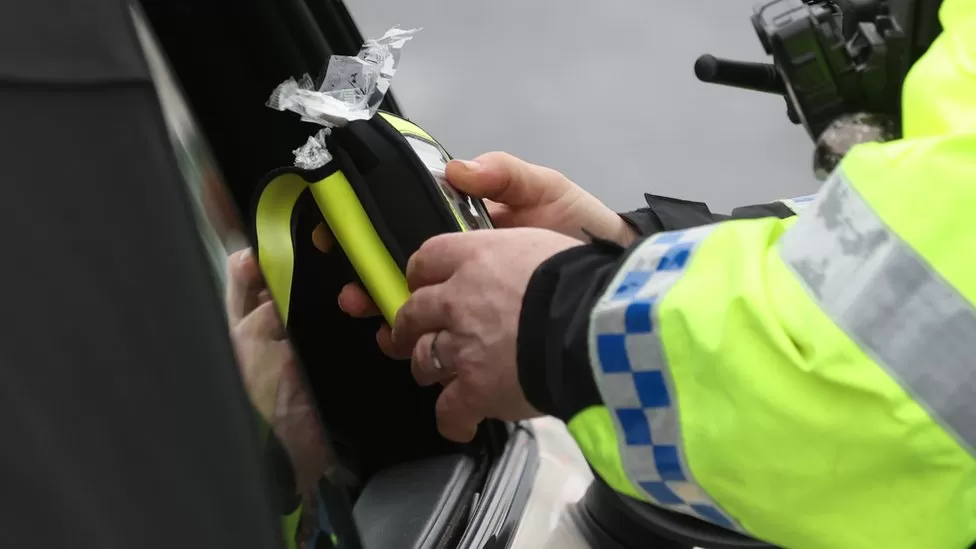Greater Manchester: Drug-driving is a 'massive problem', police chief says
- Published

More than 5,000 people were arrested on Greater Manchester's roads while over the limit for drink and drugs in 2022
There were more drug-driving arrests in a region than drink-driving last year, data has shown.
Police revealed 5,079 people were held in Greater Manchester for being over the limit in 2022, with most arrests in December.
A total of 50% of those arrests were for drug-diving, 40% were alcohol-related and 10% were no test provided.
Ch Insp Michael Parker said drug-driving was a "massive problem".
He said drink-driving had become "socially unacceptable" but it was not the same for drug-driving.
Ch Insp Parker told the Transport for Greater Manchester (TfGM) Bee Network committee about the increasing prevalence of drug-driving.
"Drug driving is a massive problem, it now exceeds drink driving, probably by a three to one basis," Ch Insp Parker explained.
"Drink driving is now socially unacceptable. It took a long period of education to get to that."
He added that the same period of education for drug-driving had not been carried out yet.
"You'll stop people in the streets and ask them if they've had a drink and they'll say 'no I don't do anything like that - I just smoke weed'," he said.
Cannabis stays in the system for a lot longer and will affect someone's ability to drive for seven days, while cocaine is a couple of days, he added.
Greater Manchester Police (GMP) said 5,079 people were arrested on the region's roads for both offences in 2022, with the highest figure coming in December when 536 errant drivers found themselves being taken into custody.
Between 2018 and 2022, a total of 245 people were killed or seriously injured on Greater Manchester's roads in incidents involving a driver impaired by alcohol or drugs, the force added.

Why not follow BBC North West on Facebook, external, Twitter, external and Instagram, external? You can also send story ideas to northwest.newsonline@bbc.co.uk